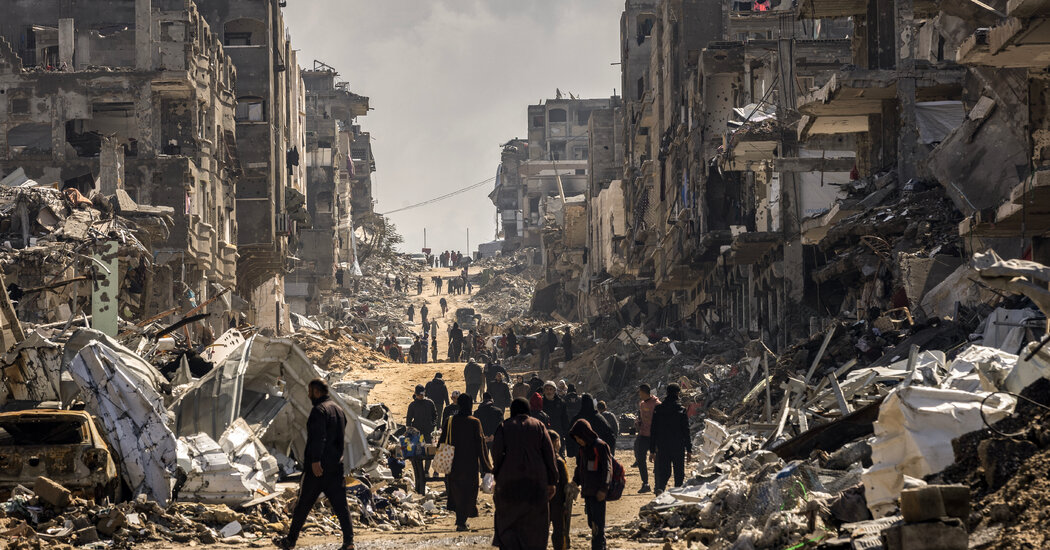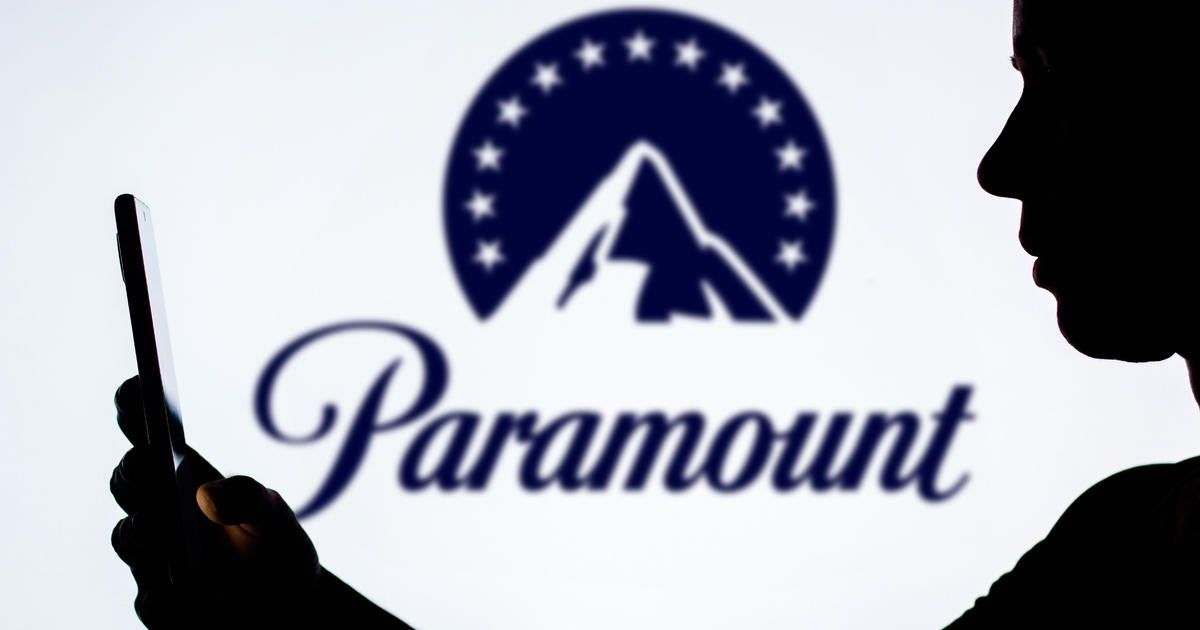Secretary of State Marco Rubio met with Prime Minister Benjamin Netanyahu of Israel in Jerusalem on Sunday, where they discussed President Trump’s insistent proposals for the United States to seize the devastated Gaza Strip and force out its Palestinian residents, among other matters.
The trip is Mr. Rubio’s first to the region as secretary of state, and comes as uncertainty is rising over whether Israel and Hamas can or are willing to turn a tenuous cease-fire in Gaza into a permanent end to their war.
But Mr. Trump’s controversial vision for transforming Gaza into an American-owned “Riviera of the Middle East” has overshadowed those high-stakes negotiations, and Mr. Rubio is sure to be pressed for more clarity about the proposal during his visits in the coming days to Saudi Arabia and the United Arab Emirates.
Mr. Trump has “been very bold about what the future for Gaza should be, not the same tired ideas of the past,” Mr. Rubio said in prepared remarks delivered alongside Mr. Netanyahu on Sunday after the two met privately. “It may have shocked and surprised many, but what cannot continue is the same cycle where we repeat over and over again and wind up in the exact same place.”
Mr. Rubio also talked about the need to watch for any security threats arising from the new government in Syria, and the imperative to disarm Hezbollah in Lebanon. And he asserted that Iran is the “common theme in all of these challenges,” using more aggressive language to describe that nation than Mr. Trump typically does in calling it “the single greatest source of instability in the region.”
“Behind every terrorist group, behind every act of violence, behind every destabilizing activity, behind everything that threatens peace and stability for the millions of people who call this region home, is Iran,” Mr. Rubio said.
Mr. Netanyahu said he had thanked Mr. Rubio for “America’s unequivocal backing for Israel’s policy in Gaza in moving forward.” However, Mr. Netanyahu’s government has yet to present a long-term strategy for Gaza to the Israeli or American public.
“I want to assure everyone who’s now listening to us, President Trump and I are working in full cooperation and coordination between us,” said Mr. Netanyahu, who met with the president in the White House on Feb. 4.
Mr. Trump surprised the world with his Gaza plan during a news conference that day with Mr. Netanyahu, who has since called it “a revolutionary, creative approach” that should be studied.
Mr. Netanyahu said on Sunday that he and Mr. Rubio had discussed Mr. Trump’s “bold vision for Gaza, for Gaza’s future — how we can work together to ensure that that future becomes a reality.” Some Israeli officials consider the idea impractical, and experts say it would be a severe violation of international law.
After Arab officials in the region immediately denounced the proposal, Mr. Rubio had suggested that Mr. Trump was merely trying to “get a reaction” and “stir” other nations into providing more assistance for postwar Gaza.
Since then, however, Mr. Trump has doubled down, telling reporters in the Oval Office on two other occasions and in a Fox News interview that he intends to move forward with the plan.
The forced expulsion of Palestinians would be ethnic cleansing and a war crime, international law scholars say. More than 47,000 Palestinians have been killed by Israeli military retaliation in Gaza for a Hamas-led assault in October 2023 that killed 1,200 people. Most of the dead on both sides have been civilians.
Mr. Trump has said Jordan and Egypt should allow the Palestinian residents of Gaza to move to their countries. The idea has long been promoted by the Israeli right but flatly rejected by Arab and Palestinian leaders as well as past U.S. presidents of both parties. King Abdullah II of Jordan publicly rejected Mr. Trump’s proposal after a Wednesday meeting at the White House that Mr. Rubio also attended.
Mr. Rubio said in a radio interview on Thursday that any Arab proposal for a postwar Gaza should address the mammoth task of reconstructing the territory and deploying a multinational security force to fight remnants of Hamas.
But that would be possible only once the war in Gaza comes to an end — which is dependent on extending a cease-fire agreement that revolves around hostage and prisoner exchanges. The first phase of the current cease-fire agreement is set to end in March.
Neither Mr. Rubio nor Mr. Netanyahu made any reference in their public remarks on Sunday to the status of negotiations for the next phase of the deal. Steve Witkoff, Mr. Trump’s special envoy to the Middle East, said in an interview with Fox News on Sunday that talks on phase two of the cease-fire deal would take place this week.
Later Sunday, Mr. Netanyahu’s office said that the Israeli leader had spoken with Mr. Witkoff and informed him that he would convene Israel’s security cabinet on Monday to discuss the second phase of the agreement.
Indirect negotiations for a permanent cessation of hostilities and the release of all remaining living hostages from Hamas captivity were supposed to have begun two weeks ago and were meant to be finalized by the end of this week. Mr. Netanyahu’s spokesman has denied that any such talks are underway.
Israel and Hamas have both asserted that the other party has violated the terms of the cease-fire. On Sunday, Hamas accused Israel of violating and showing a lack of commitment to the cease-fire deal by preventing the entry of trailers into Gaza to house displaced Palestinians and delaying talks for the next phase of the agreement.
Israeli officials acknowledged holding up the entry of housing trailer into Gaza, saying over the weekend that the issue would be discussed in the coming days, without elaborating on reasons for the delay.
Mr. Trump, meanwhile, appears to have given Mr. Netanyahu some leeway for changing the terms of the deal or for resuming fighting in Gaza, should he choose to do so, saying in a social media post on Saturday that the United States would back any decision made by the Israeli government.
Both Mr. Netanyahu and Mr. Rubio spoke on Sunday of the need to eliminate Hamas’s military and governing capabilities. Israel’s Ministry of Defense announced that a shipment of 2000-pound bombs, which had been held up by the Biden administration, had arrived in Israel overnight. U.S. military officials have said that such bombs are unsuitable for urban combat, though the Israeli military has dropped them in Gaza.
Mr. Rubio’s arrival in Israel on Saturday night came hours after Hamas released three Israeli hostages, including a dual American citizen, in exchange for 369 Palestinian prisoners. On Sunday, Mr. Rubio released a written statement saying that Hamas “still holds 73 hostages including New Jersey native Edan Alexander and the remains of four Americans murdered in Gaza. They must ALL come home NOW.”
The Israeli and American governments had been pressuring Hamas for days to release the hostages in hopes of sustaining the cease-fire first reached in mid-January with the prodding of Biden and Trump aides. Mr. Trump warned last Monday that Israel could cancel the agreement and that “all hell is going to break out” if Hamas did not release all hostages by Saturday.
Mr. Rubio is on his second trip as secretary of state. He landed in Israel after a stop at the Munich Security Conference, and was expected to fly to Saudi Arabia and the United Arab Emirates. Mr. Rubio had planned to stop in Qatar earlier, but that was not on the announced schedule.
In Saudi Arabia, Mr. Rubio and two other top Trump aides plan to meet with Russian officials to discuss ending Russia’s war in Ukraine.
Michael Crowley contributed reporting from Washington, and Patrick Kingsley contributed reporting from Jerusalem.
United States Politics and Government,United States International Relations,Palestinians,Gaza Strip,Israel,Middle East,Rubio, Marco,Trump, Donald J,Abbas, Mahmoud,Abdullah II, King of Jordan
#Jerusalem #Rubio #Netanyahu #Praise #Trumps #Idea #Expel #Palestinians #Gaza



